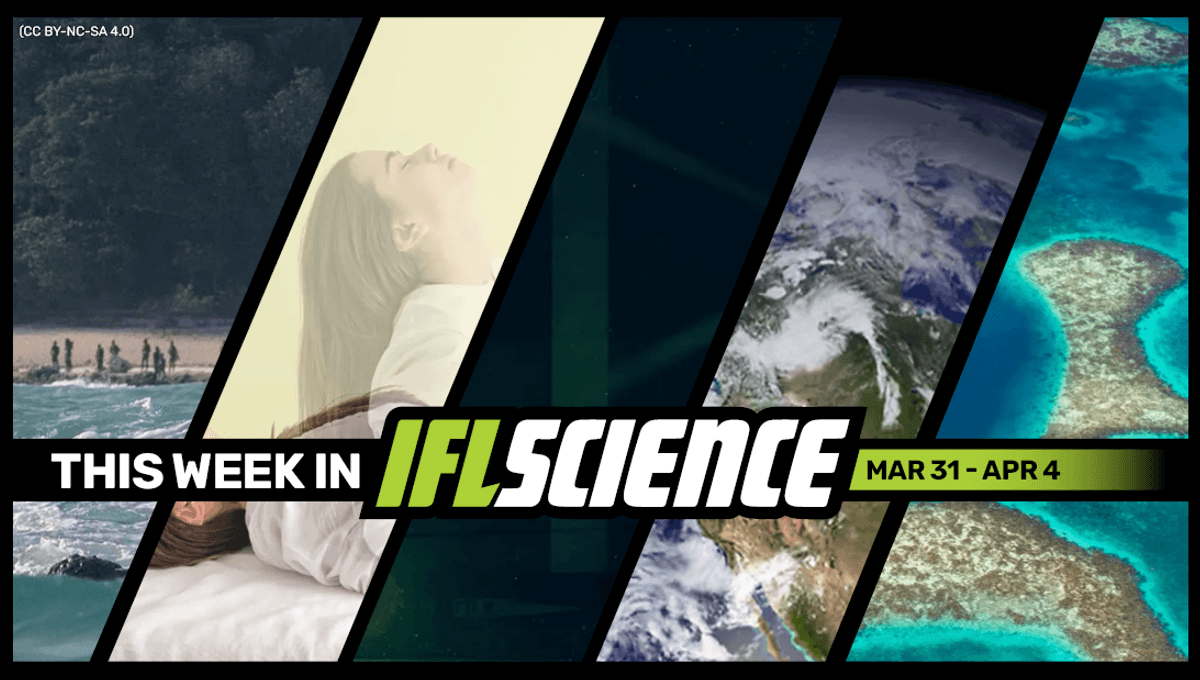
This week, a study has revealed a biological basis of near-death experiences, a Loch Ness monster trap that’s been lost underwater for 55 years has been recovered, revealing some eerie images, and scientists have drilled to the bottom of the Great Blue Hole and uncovered 5,700 years of history. Finally, we ask the experts why we’ll never find a frozen dinosaur.
Create an IFLScience account to get all the biggest science news delivered straight to your inbox every Wednesday and Saturday.
American Man Arrested After Attempting To Visit Isolated Sentinelese Tribe With Can Of Cola As “Offering”
An American wielding a can of cola has reportedly been arrested after attempting to visit North Sentinel Island in the Indian Ocean, home to the Sentinelese people, one of the most isolated and vulnerable tribes in the world. Experts have described the case as “reckless and idiotic”. Read the full story here
Not Just Hallucinations: Study Reveals Biological Basis Of Near-Death Experiences
Seeing a white light, feeling yourself leave your body, and sensing the presence of some sort of supernatural entity are all hallmarks of near-death experiences (NDEs) and scientists think they may now be able to explain these strange conscious phenomena. Often reported by cardiac arrest sufferers after resuscitation, these stereotypical visions and sensations may actually represent an evolutionary response to mortal danger, according to the authors of a new study. Read the full story here
Eerie Images Recovered From Loch Ness Monster Camera Trap Lost Underwater For 55 Years
An underwater vehicle known as “Boaty McBoatface” after its naming was left to the public has recovered a long-lost camera from the depths of Loch Ness, aimed at capturing images of the fabled Loch Ness Monster. In 1970, Professor Roy Mackal, of the Loch Ness Investigation Bureau and the University of Chicago, placed camera traps underwater with the aim of spotting the giant. Fifty-five years later, that camera has been found, around 180 meters underwater, and remarkably it was still intact. Read the full story here
SpaceX Makes History By Orbiting Over The Earth’s Poles. Why Haven’t We Done It Before?
On Monday, SpaceX made space history, as four private astronauts were launched into a pole-to-pole orbit not traveled by any human before them. Though the Fram2 mission is a private one on behalf of cryptocurrency billionaire Chun Wang, the crew has a few scientific tasks. But why is this orbit so unusual, and why has nobody done it before? Read the full story here
Scientists Drilled The Bottom Of Great Blue Hole And Uncovered 5,700 Years Of History
The history of the Great Blue Hole in the Caribbean is being revealed by a 30-meter (98-foot) sediment core taken from the depths of the marine sinkhole. Chronicling 5,700 years of natural history, the sample shows hurricanes are becoming increasingly common in this part of the southwestern Caribbean and a stormy future may lie ahead. Read the full story here
TWIS is published weekly on our Linkedin page, join us there for even more content.
Feature of the week:
Why We’ll Never Find A Frozen Dinosaur, But There Are Mummified Dinosaurs
Wouldn’t it be great if one day we could find a whole dinosaur frozen in the permafrost like the mammoths, woolly rhinos, and wolves found in Siberia and Canada? Unfortunately, that’s just never going to happen, and we spoke to Dr Susannah Maidment, senior researcher in the division of Vertebrates, Anthropology, and Palaeobiology at the Natural History Museum, London, to find out why. Read the full story here
More content:
Have you seen our e-magazine, CURIOUS? Issue 33 April 2025 is available now. This month we asked, “Do Animals Make Art?” – check it out for exclusive interviews, book excerpts, long reads, and more.
PLUS, the We Have Questions podcast – an audio version of our coveted CURIOUS e-magazine column – continues. In episode 6, we ask, “How Do You Rediscover A ‘Lost’ Species?”
Season 4 of IFLScience’s The Big Questions podcast has concluded. To revisit all of season four’s episodes, click here.
Source Link: Man Attempts To Bring Cola “Offering” To Isolated Sentinelese Tribe, SpaceX Makes History By Orbiting Over Earth's Poles, And Much More This Week